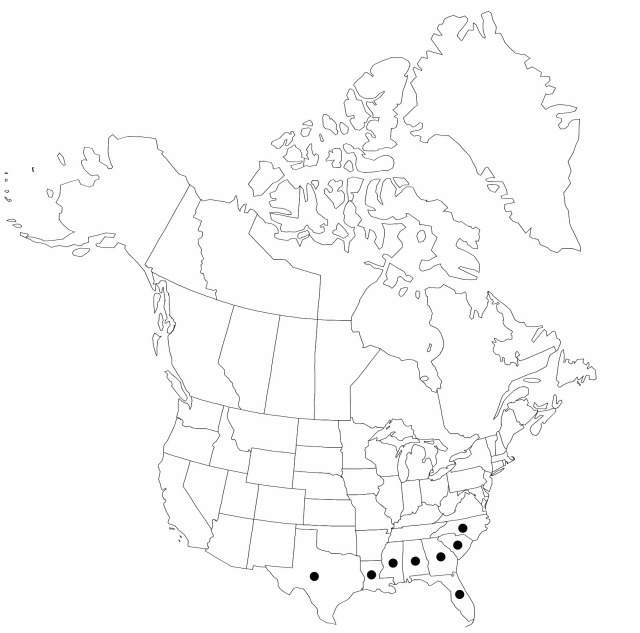Rhynchospora mixta
in J. K. Small, Fl. S.E. U.S., 197, 1328. 1903.
Plants perennial, cespitose, 80–100 cm; rhizomes stoloniferous, often elongate, slender, to 1 dm or more. Leaves exceeded by culm; blades lax, linear, proximally flat, 3–5 mm wide, apex abruptly narrowed, trigonous, subulate. Inflorescences: spikelet clusters 4–6, mostly widely spaced; peduncles erect or ascending, slender; branches capillary, divaricate, or widely spreading, to small clusters of 1–few spikelets; leafy bracts mostly exceeding clusters. Spikelets lanceovoid, 3–4(–6) mm, apex acute to acuminate; fertile scales elliptic, 2.5 mm, apex acute, midrib forming mucro or awn. Flowers: perianth bristles 6, overtopping tubercle, antrorsely barbellate. Fruits mostly 2–4(–several) per spikelet, (1.5–)1.8–2(–2.1); body greenish or pale brown, broadly ellipsoid to narrowly obovoid, lenticular, 1.2–1.5 × 1–1.2 mm; surfaces transversely finely wavy-rugulose, intervals vertically striatealveolate, or alveolae isodiametric; tubercle flat, triangular-subulate, 0.5–0.6(–0.8) mm.
Phenology: Fruiting summer–fall.
Habitat: Sandy silts of swamp forests and environs
Elevation: 0–200 m
Distribution

Ala., Fla., Ga., La., Miss., N.C., S.C., Tex.
Discussion
Some extremes of Rhynchospora caduca with more diffuse inflorescences are mistaken for R. mixta, particularly those in which ultimate inflorescence branches lead to solitary spikelets. In those rare instances one should find a somewhat larger spikelet and a broader fruit than is typical for R. mixta.
Selected References
None.
